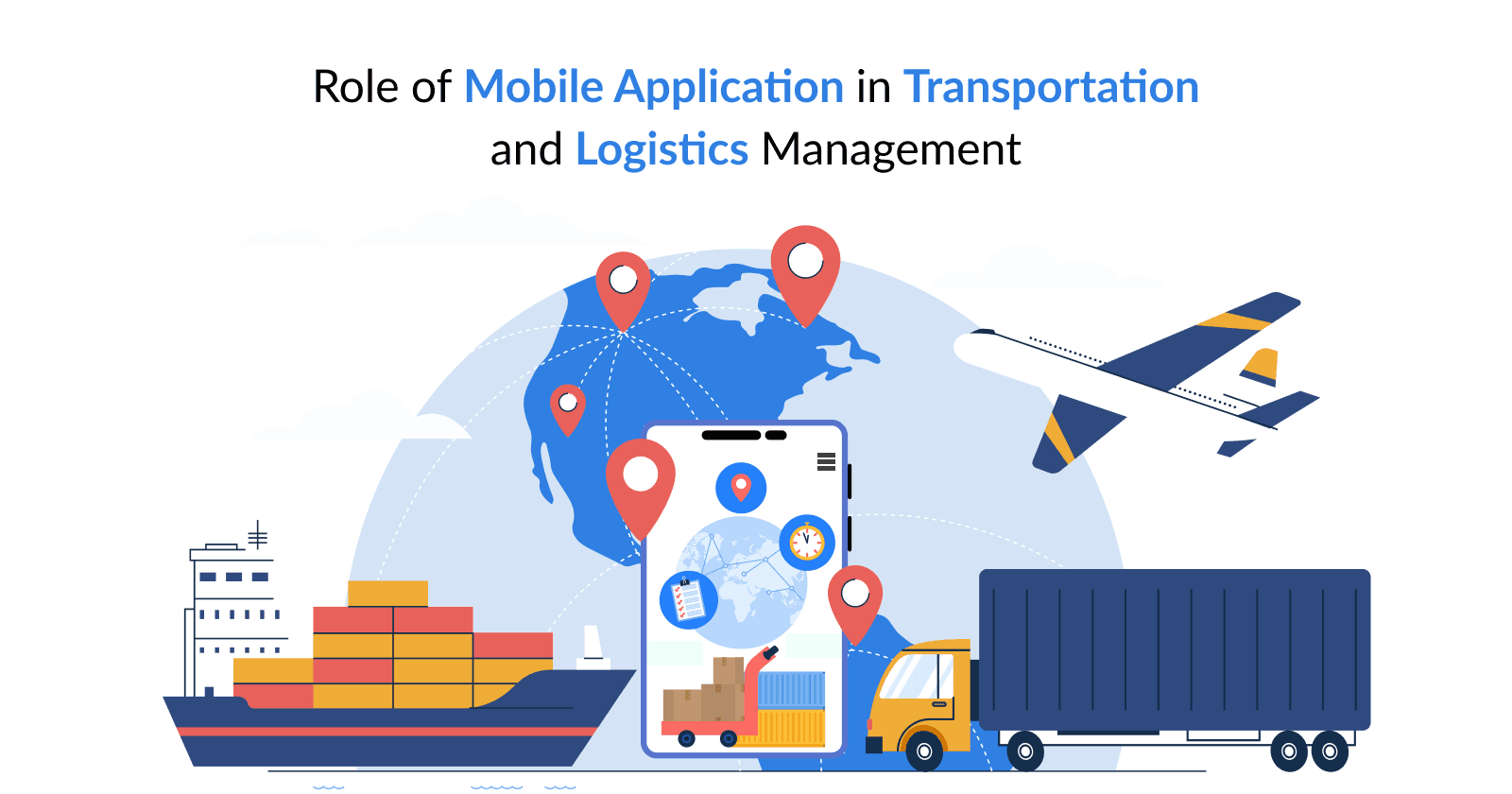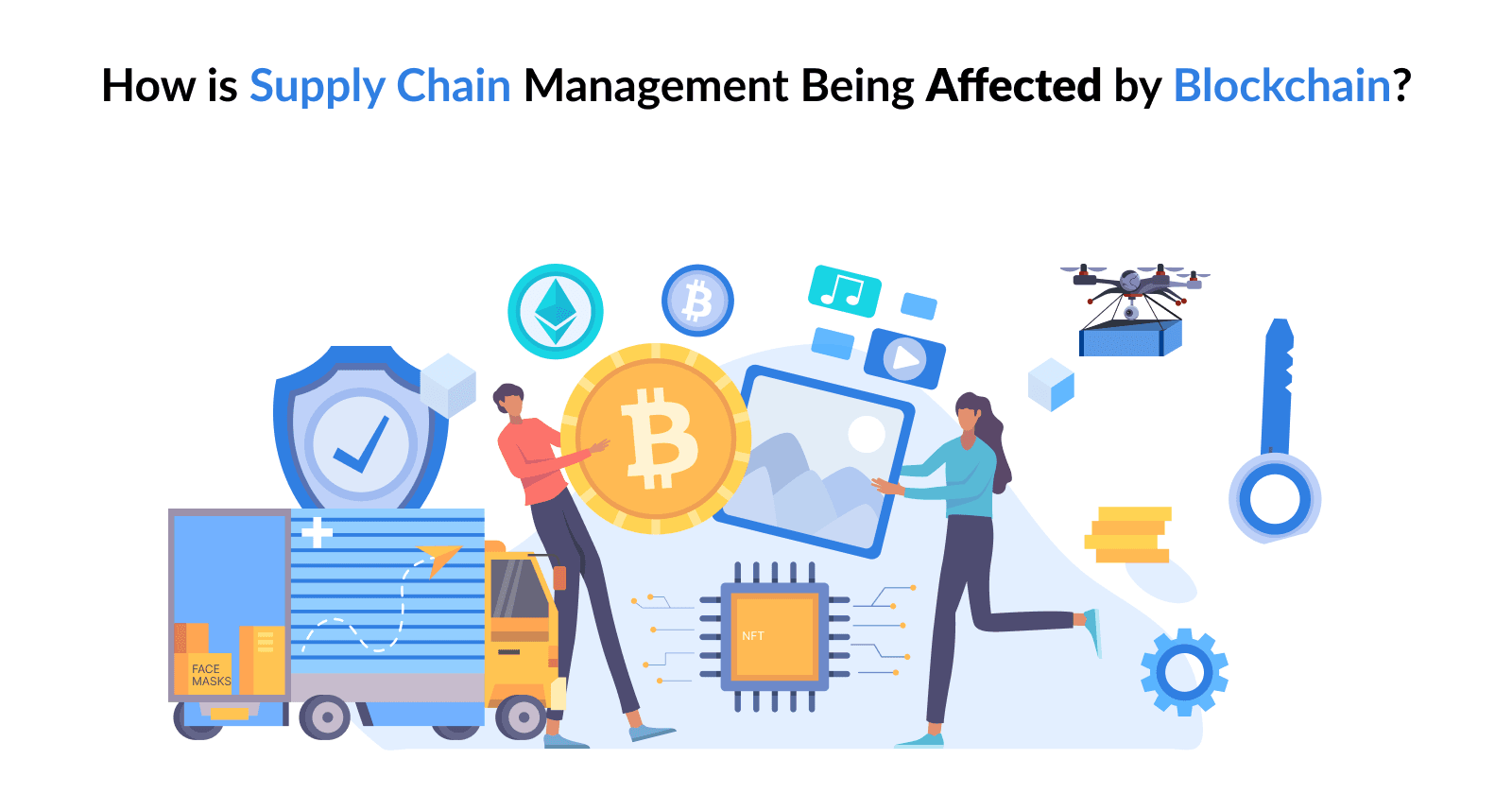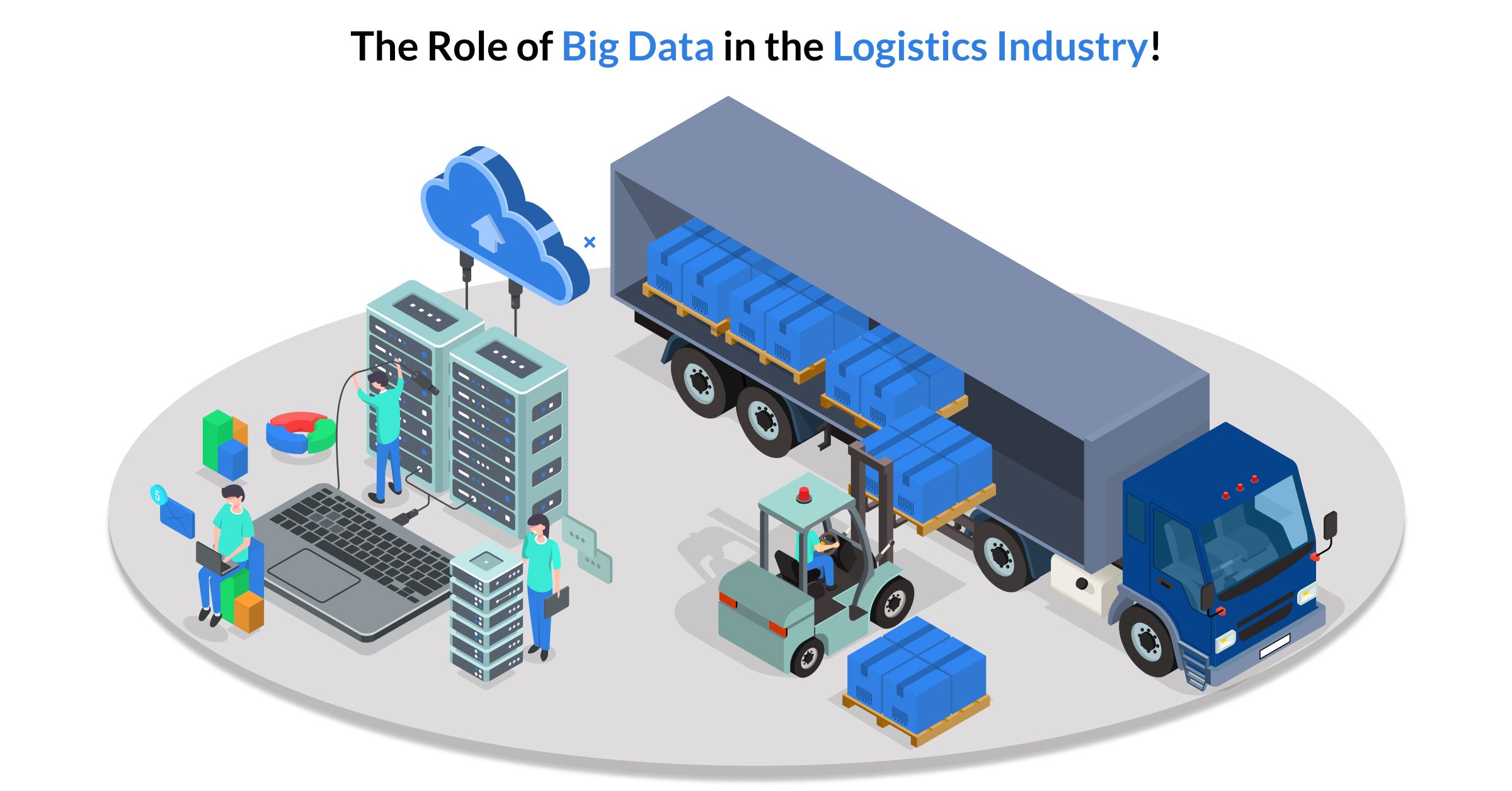Introduction
The Internet of Things (IoT) is a revolutionary technology that has disrupted various industries, including logistics and supply chain management. IoT has enabled businesses to collect, analyze, and utilize data in real time, leading to increased efficiency, improved decision-making, and enhanced customer experience.
The Internet of Things (IoT) is a revolutionary technology that has disrupted various industries, including logistics and supply chain management. IoT has enabled businesses to collect, analyze, and utilize data in real time, leading to increased efficiency, improved decision-making, and enhanced customer experience.
In this blog, we will discuss the impact of IoT on the logistics industry and supply chain management. We will also explore the benefits, challenges, and opportunities associated with IoT implementation in logistics and supply chain management.
Benefits of IoT in the Logistics Industry and Supply Chain Management
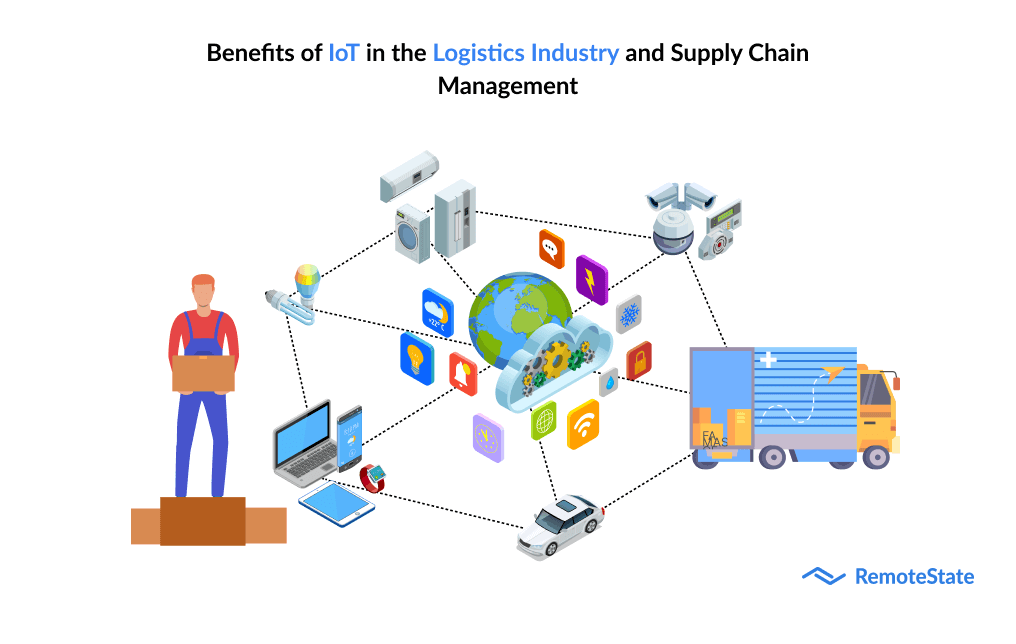
Improved Visibility and Transparency
One of the primary benefits of IoT in logistics and supply chain management is improved visibility and transparency. IoT-enabled devices such as sensors, RFID tags, and GPS trackers can track shipments, vehicles, and goods in real time. This real-time tracking enables logistics companies to monitor their operations and make timely decisions. It also allows customers to track their shipments and know their status, leading to enhanced customer satisfaction.
Reduced Operational Costs
IoT can help reduce operational costs in logistics and supply chain management. IoT-enabled devices can automate tasks such as inventory management, route optimization, and fleet management, leading to reduced labor costs. It can also help reduce fuel consumption and maintenance costs by providing real-time data on vehicle performance and fuel consumption.
Enhanced Efficiency and Productivity
IoT can improve the efficiency and productivity of logistics and supply chain management. Real-time data from IoT devices can help companies identify bottlenecks in their operations and take corrective action. It can also enable them to optimize their routes, reduce delivery times, and improve the overall quality of their services.
Improved Customer Experience
IoT can enhance the customer experience in logistics and supply chain management. Real-time tracking of shipments enables customers to know the status of their shipments, leading to increased satisfaction. IoT can also help companies personalize their services by analyzing customer data, leading to improved customer engagement.
Challenges of IoT in the Logistics Industry and Supply Chain Management
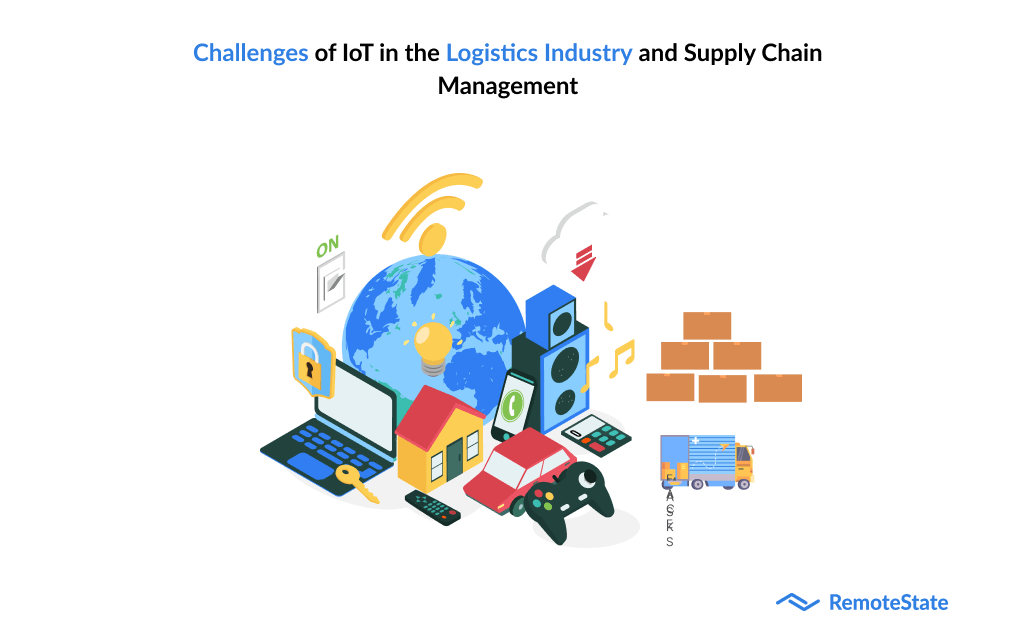
Security and Privacy Concerns
One of the significant challenges of IoT in logistics and supply chain management is security and privacy concerns. IoT devices are vulnerable to cyber-attacks, and their data can be compromised, leading to data breaches. Logistics companies must implement security measures such as encryption, access controls, and firewalls to protect their IoT devices and data.
Integration and Interoperability
Another challenge of IoT in logistics and supply chain management is integration and interoperability. Logistics companies often have legacy systems that are not compatible with IoT devices. Companies must invest in integration and interoperability solutions to enable seamless data transfer between their legacy systems and IoT devices.
Data Management and Analytics
IoT generates vast amounts of data, and logistics companies need to have the capability to manage and analyze this data. It requires advanced analytics tools and skilled personnel to extract insights from IoT data. Logistics companies need to invest in data management and analytics solutions to fully leverage the benefits of IoT.
Cost
The implementation of IoT in logistics and supply chain management can be expensive. Companies need to invest in IoT devices, infrastructure, and personnel to implement IoT solutions. It can be a significant investment, and logistics companies need to carefully evaluate the costs and benefits of IoT implementation.
Opportunities of IoT in the Logistics Industry and Supply Chain Management
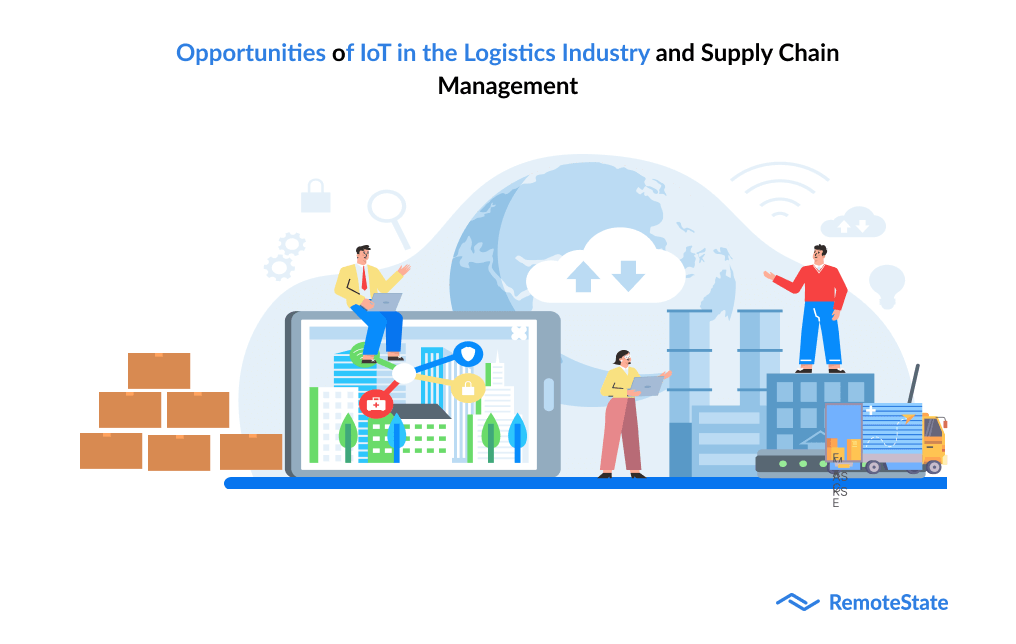
Predictive Maintenance
IoT can enable predictive maintenance in logistics and supply chain management. IoT devices can monitor the performance of vehicles, equipment, and machinery in real time. It enables logistics companies to detect faults before they occur and take preventive action, leading to reduced downtime and maintenance costs.
Blockchain Integration
IoT can be integrated with blockchain technology to provide enhanced security and transparency in logistics and supply chain management. Blockchain can enable secure data transfer and real-time tracking of shipments, leading to improved supply chain visibility and reduced fraud.
Real-Time Inventory Management
IoT can enable real-time inventory management in logistics and supply chain management. IoT devices such as RFID tags can track inventory in real time, leading to reduced inventory costs and improved inventory accuracy.
Autonomous Vehicles
IoT can enable the development of autonomous vehicles in logistics and supply chain management. Autonomous vehicles can reduce labor costs and improve delivery times. It can also reduce the risk of accidents and improve safety on the roads.
Conclusion
In conclusion, the impact of IoT on logistics and supply chain management is significant. It has enabled companies to improve visibility and transparency, reduce operational costs, enhance efficiency and productivity, and improve the overall customer experience.
However, the implementation of IoT in logistics and supply chain management also poses significant challenges, including security and privacy concerns, integration and interoperability, data management and analytics, and cost.
Despite these challenges, IoT presents significant opportunities in logistics and supply chain management, including predictive maintenance, blockchain integration, real-time inventory management, and autonomous vehicles.
Logistics companies need to carefully evaluate the costs and benefits of IoT implementation and invest in the necessary infrastructure, personnel, and solutions to fully leverage the benefits of IoT.
How Remotestate Can Help in IoT Implementation for the Logistics Industry and Supply Chain Management!
As the impact of IoT on logistics and supply chain management becomes increasingly apparent, businesses are seeking innovative ways to implement IoT technology into their operations. This is where Remotestate can help.
Remotestate specializes in developing custom IoT solutions that are tailored to the unique needs of businesses in the logistics and supply chain industry. Their team of experienced developers can help businesses navigate the challenges of IoT implementation, including security and privacy concerns, integration and interoperability, data management and analytics, and cost.
Through the development of custom IoT solutions, Remotestate can help businesses in the logistics and supply chain industry unlock the full potential of IoT technology. From real-time inventory management to predictive maintenance, Remotestate can provide the necessary expertise and support to enable businesses to stay competitive in an increasingly digital world.
FAQs
What is IoT, and how does it work in logistics and supply chain management?
IoT stands for the Internet of Things, which refers to a network of physical devices, vehicles, and other objects embedded with sensors, software, and connectivity that enables them to collect and exchange data. In logistics and supply chain management, IoT devices such as sensors, RFID tags, and GPS trackers can track shipments, vehicles, and goods in real time, leading to improved visibility and transparency, reduced operational costs, enhanced efficiency and productivity, and improved customer experience.
What are the benefits of IoT in logistics and supply chain management?
The benefits of IoT in logistics and supply chain management include improved visibility and transparency, reduced operational costs, enhanced efficiency and productivity, and improved customer experience.
What are the challenges of IoT in logistics and supply chain management?
The challenges of IoT in logistics and supply chain management include security and privacy concerns, integration and interoperability, data management and analytics, and cost.
What are the opportunities of IoT in logistics and supply chain management?
The opportunities of IoT in logistics and supply chain management include predictive maintenance, blockchain integration, real-time inventory management, and autonomous vehicles.
How does IoT enable predictive maintenance in logistics and supply chain management?
IoT devices such as sensors and machine learning algorithms can monitor equipment and predict when maintenance is required, leading to reduced downtime and maintenance costs.
How does blockchain integration benefit logistics and supply chain management?
Blockchain integration can improve supply chain transparency and security, enabling companies to track products from the source to the end consumer and prevent fraud.
Publication Date
2023-04-27
Category
Logistics
Author Name
Sajal Nehra
